In today's fast-paced world, the demands of our daily life often make maintaining a healthy, balanced diet seem challenging, particularly for those who are on a tight budget. The good news is, eating healthy doesn't necessarily mean that we have to spend a lot of money on pricey groceries.

Even with a small budget (in addition to the rising cost of living in Malaysia), it’s entirely possible to prioritise nutrition and make wholesome choices that promote overall health and wellbeing. In fact, we have featured articles on how the 3 major races in Malaysia – Malay, Chinese and Indian – can adopt a healthier diet.
In this article, we will explore 7 ways to eat healthy on a budget that can empower every Malaysian, regardless of their financial constraints, to effectively navigate the world of nutrition without breaking the bank.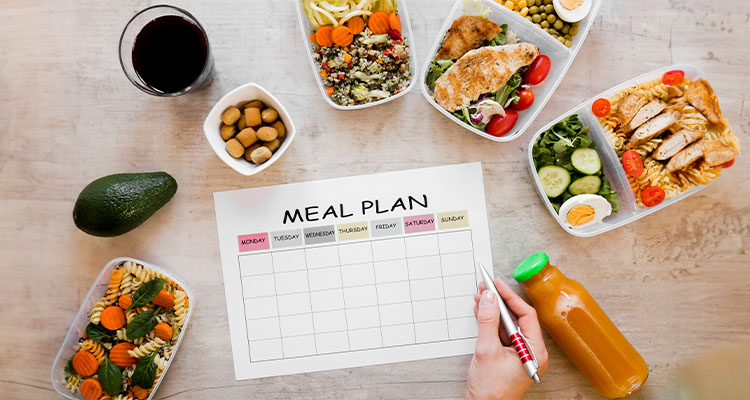
Before visiting the grocery store or supermarket, allocate some time to plan your meals, be it breakfast, lunch, dinner and yes, even snacks, for the upcoming week according to the recommended food pyramid. Make a list of the ingredients that you will need. Planning ahead helps avoid impulse purchases and ensures you buy only what you need, thus reducing food wastage and overspending. Allocate a budget for groceries and stick to it as closely as possible.
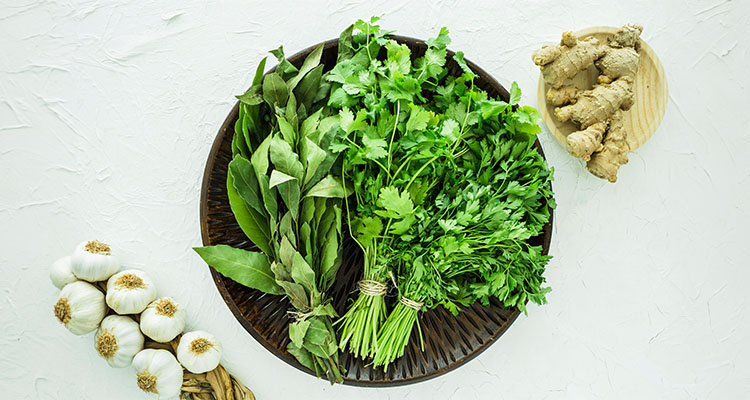
Malaysia is blessed with a rich variety of fruits, vegetables, and indigenous herbs (ulam) that are not only nutritious but also affordable all year round. Embrace locally grown and seasonal produce as they are often cheaper than imported items and packed with nutrients. Incorporating ingredients such as papayas, bananas, guava, ulam, and leafy greens into your meals, whether as part of the main meal or snack, can provide essential vitamins and minerals without straining your budget. If you’re looking for some healthier alternatives, check out our healthy recipes here!
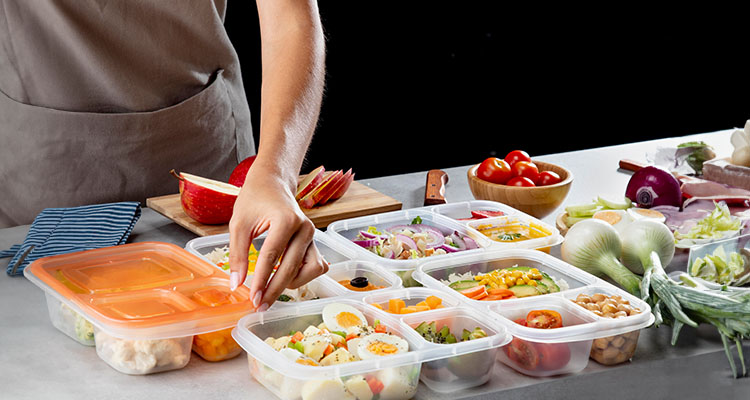
Buying in bulk can save you a lot of money. Keep an eye out for discounts and offers on staple items such as rice, lentils, beans, and whole grains, which provide a good source of carbohydrates, protein, and fibre.
Once you've stocked up on the essentials, consider batch cooking and meal preparation for the week ahead to save you the trouble of having to decide what to eat each day. This will not only reduce the time you need to spend in the kitchen daily, but also ensures you have nutritious options on hand, making it less likely that you'll resort to unhealthy convenience foods.
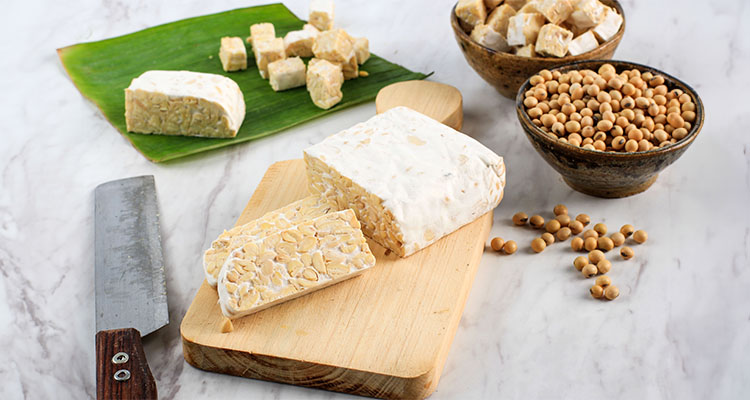
Protein is essential for a balanced diet, and there are plenty of affordable options available locally. Eggs, for example, are a cost-effective and versatile choice. Plant-based proteins such as tofu, tempeh, and legumes are also economical, nutritious, and contain less saturated fat.
Additionally, local Malaysian fishes like ikan kembung (Indian Mackerel), ikan kerisi (Threadfin Breams), and ikan cencaru (Torpedo Scad) provide budget-friendly protein sources packed with essential nutrients and healthy fats. Including these protein-rich foods in your diet helps ensure you maintain a balanced diet and manage costs effectively.
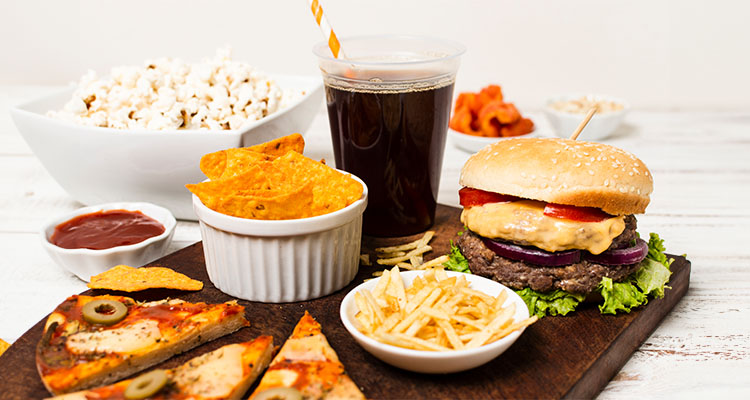
Processed and convenience foods tend to be more expensive and often lack essential nutrients, while being high in unhealthy fats, sugars, and sodium. Minimise your consumption of these items and opt instead for whole, unprocessed foods whenever possible. Preparing meals from scratch using whole foods not only saves money, but also empowers you to monitor the ingredients closely and make healthier choices for you and your family.

Beverages can quickly add up to your grocery bill, especially if you're buying sugary drinks or pre-packaged juices. Instead, opt for water as your primary beverage and flavour it with slices of lemon or cucumber (or any fruits of your choice) for a refreshing twist. Herbal teas are another affordable option that can provide hydration without the added calories or cost.
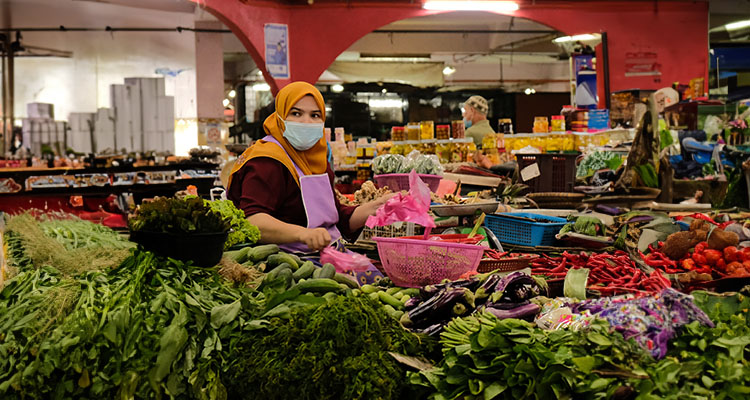
Take advantage of community resources such as pasar tani (farmer’s market), local food cooperatives, and community gardens. These options often offer fresh, affordable produce directly from local farmers, cutting out the middleman and reducing costs.
Also, consider joining online community groups for bulk purchases, which often offer discounted prices. These strategies can help you access nutritious foods at lower prices, and support your efforts to adopt a healthy diet on a budget.
In conclusion, eating healthy on a budget is not only feasible, but also crucial for maintaining optimal health and wellbeing. By planning ahead using these 7 ways to eat healthy on a budget via embracing local produce, practising smart shopping habits, and utilising community resources, you can make nutritious choices while saving money. Remember, small changes can lead to big results when it comes to your health and finances.

American Heart Association. (2021, May 6). Eating healthy on a budget. Retrieved from https://www.heart.org/en/health-topics/diabetes/prevention--treatment-of-diabetes/how-to-eat-healthy-on-a-budget
Muhamad, N. A., & Mohamad, J. (2012). Fatty acids composition of selected Malaysian fishes. Sains Malaysiana, 41(1), 81–94.
Centres for Disease Control and Prevention. (2022, September 20). 6 Tips for Eating Healthy on a Budget. Retrieved from https://www.cdc.gov/diabetes/healthy-eating-budget.html
This article is contributed by
Georgen Thye, Consultant Dietitian
BSc. (Hons.) Nutrition and Dietetics, IMU
Council Member of the Malaysian Dietitians' Association (2021-2023)